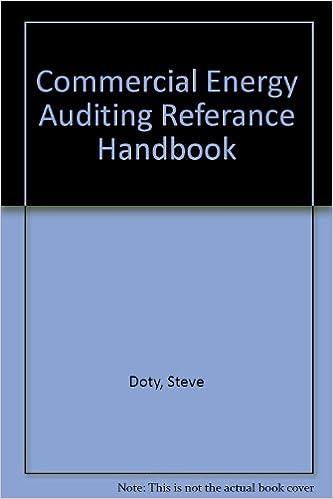Question
Question 41 of 70. Which of these is NOT required to receive a waiver of the penalty for not taking a required minimum distribution from
Question 41 of 70.
Which of these is NOT required to receive a waiver of the penalty for not taking a required minimum distribution from a retirement account?
File Form 5329.
Prove it was due to a reasonable error.
Withdraw double the required minimum distribution (RMD) the following year.
Establish they are taking steps to remedy the failure.
Mark for follow up
Question 42 of 70.
Which of these statements is FALSE concerning credits and deductions?
Refundable credits may reduce the taxpayer's tax liability below zero, and the difference is refunded to the taxpayer.
Nonrefundable means that the combined amount of credits cannot reduce the taxpayer's tax liability below zero.
Credits may be used to reduce taxable income.
Deductions, lower the tax by reducing taxable income.
Mark for follow up
Question 43 of 70.
Jayden comes to you to file his tax return. He tells you that he has received all his compensation in cash for several years, but this year he received a Form W-2, so he will be filing his taxes. What do you do?
File his current-year return with a note to the IRS explaining that you believe he has not filed previous years because he received his wages in cash.
Refuse to file the current-year return until you have filed all his previous returns.
File the current-year return, but explain to Jayden the law regarding filing requirements and encourage him to file previous returns.
Refuse to file the current-year return, explaining that you don't want to be put in jeopardy because of his failure to file in the past.
Mark for follow up
Question 44 of 70.
When a tax preparer has knowledge that a client has not complied with any tax law, they must:
Advise the client that the IRS may contact them about their tax return.
Notify their manager of the noncompliance and let them handle it.
Advise the client promptly of the fact and the consequences of the noncompliance, error, or omission.
Notify the IRS of the noncompliance.
Mark for follow up
Question 45 of 70.
Which of these is TRUE? A U.S. national _____.
Is the same as a resident of the United States.
Is a resident who owes their allegiance to American Samoa.
Is a U.S. citizen residing in Mexico or Canada.
Meets the citizenship or residence test for a dependent.
Mark for follow up
Question 46 of 70.
Zina Balaskas (57) is single and earned $3,250 in wages. Because she has a large amount of investment income, she would like to contribute and deduct the largest allowable IRA amount to help reduce her tax liability. She has not yet made a contribution, but will do so before the due date of her return. Zina's maximum traditional IRA deduction is $_____________.
$0
$3,250
$6,000
$7,000
Mark for follow up
Question 47 of 70.
Juliet's 2020 MAGI is $79,375. She files as head of household and claims her dependent daughter, Ella. Juliet paid $5,500 for Ella's college tuition. If Juliet chooses to claim the tuition and fees deduction, what is her maximum deduction?
$0
$2,000
$4,000
$5,500
Mark for follow up
Question 48 of 70.
Which of these are ordinary dividends?
Dividends paid on a credit union savings account and reported on a Form 1099-INT.
Exempt-interest dividends paid by a mutual fund.
Capital gain distributions reported in box 3a of a Form 1099-DIV.
Dividends from stock reported in box 1a of a Form 1099-DIV.
Mark for follow up
Question 49 of 70.
For 2020, the minimum distribution was waived as a provision of the CARES Act. Prior to 2020 and after 2020, which of these statements is FALSE concerning required minimum distributions?
The taxpayer may request relief from the penalty by filing Form 5329 and attaching a letter of explanation to the form.
The penalty may be waived if the account owner can prove that the distribution did not take place due to reasonable error, and if they can establish that they are taking reasonable steps to remedy the situation.
If a taxpayer does not make the required withdrawal by the deadline, they are subject to a 50% tax penalty based on the amount they should have withdrawn, but did not.
The required minimum distribution rules apply only to Roth IRAs.
Mark for follow up
Question 50 of 70.
Anastasia, a 42-year-old taxpayer, earned $80,000 in wages. What is the maximum contribution she can make to her 401(k) plan in 2020?
$6,000
$7,000
$19,500
$26,000
Mark for follow up
Step by Step Solution
There are 3 Steps involved in it
Step: 1

Get Instant Access to Expert-Tailored Solutions
See step-by-step solutions with expert insights and AI powered tools for academic success
Step: 2

Step: 3

Ace Your Homework with AI
Get the answers you need in no time with our AI-driven, step-by-step assistance
Get Started


